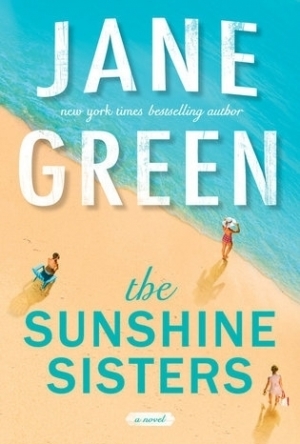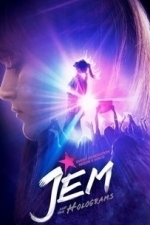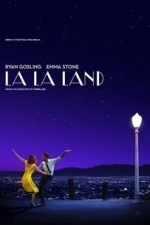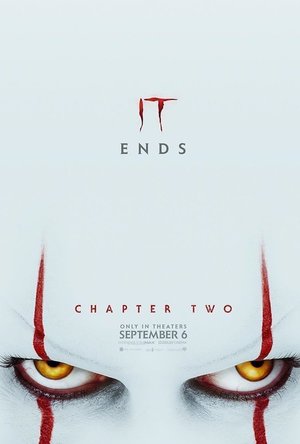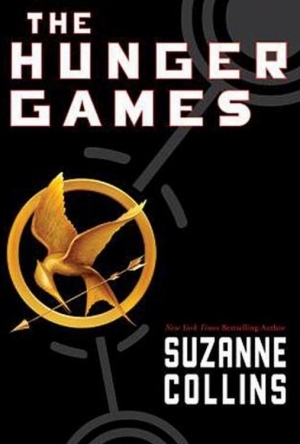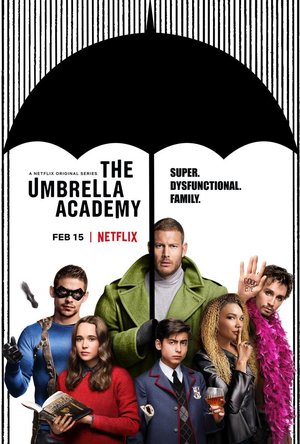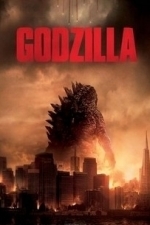Kristy H (1252 KP) rated The Sunshine Sisters in Books
Jan 21, 2018
In some ways, I'm not sure why I keep giving Jane Green books a chance. I liked Summer Secrets well-enough, but was really let down by Saving Grace and Falling. I was intrigued that in her acknowledgements, Green mentions that this is the first book in while where she's felt like herself. I went in hoping that this was true, but still wary, and truthfully, this wariness may have clouded some of my thoughts and feelings about the book.
Overall, this is a summery read, though it does deal with some serious subject matter. If you're looking for a book that will surprise you, this isn't it. Most of these plot points I saw coming from a few miles away; I predicted the majority of the twists and turns before they happened. And, truly, I think the ending is a foregone conclusion. Green relies a bit to heavily on some tropes, as well. Serious older sister? Check. Insecure middle sister? Check. Flighty younger sister? She's here, too, don't worry.
Still, this was a fun book--despite the dark topic at its core--and I found myself compelled to read through the second half in nearly one sitting. Despite some of the transparency of the characters, I was oddly invested in their lives. The novel starts out with a brief glimpse of Ronni summoning her daughters home, then goes back in the past, allowing us to learn about the Sunshine family via various snippets from the sisters at different points in time. In this way, we sort of catch up with the family fast-forward style--it's like a cheat sheet of sorts. It also allows us to get to know each sister a bit better and explore their relationship with their mother (and other sisters). It's easy to see how much influence Ronni had on their lives and how she shaped them into the women they are today.
The girls can certainly be frustrating at times. Poor, needy Meredith drove me nearly mad, with her insecurities and inability to stand up for herself. There's also a point in the book where Meredith magically cleans up after a party (everything is fixed) and later loses a large amount of weight (everything is fixed, again!). I would have liked to have seen a little more plot realism. It was also hard to see how anyone could be quite as big of a doormat as Meredith, even with her mother's influence. And, truly, Ronni is pretty bad. It's an interesting technique--learning how terrible of a mother she is after we're told in the beginning of the novel that she's sick. But, in this way, we're allowed to see how the sisters were alienated by their poor upbringing and how everyone has reached the point we are at today.
Eventually, we reach the present day, with the girls learning about their mother's illness and coming to grips with reality. And, Ronni, of course, must grapple with the kind of mother she was to her children. She's a surprisingly compelling character considering how awful she was to her children, so that's a testament to Green's characterization. To me, the novel picked up a bit more in the present day time period. There were still some silly, unbelievable moments, but I truly did find myself invested in Meredith, Nell, and Lizzy (and Ronni).
The book does wrap things up too easily, as I stated. It's often quite trite and cliche, so you have to go in prepared. Think Lifetime movie, wrapped up in a bow. Still, it's fun at times and certainly a quick read. Well-suited for the beach or a vacation.
I received a copy of this novel from the publisher and Netgalley (thank you!).
Gareth von Kallenbach (980 KP) rated Maneater in Video Games
Jul 26, 2019
Recently I spoke with Bill Munk – Game Director at Tripwire Interactive about their pending game Maneater. I saw the game at E3 and it looks like a promising game indeed.
What is the background and setting for the game?
Maneater is a single-player, open world, action RPG set in a fictionalized version of the US Gulf Coast. Players take on the role of a baby bull shark torn from its mother’s belly. Your only tools are your wits, your jaws, and an uncanny ability to evolve as you feed. Anything and everything is on the menu… provided you kill it before it kills you.
How did the idea to play as a Shark come about?
The concept for Maneater originally came from Alex Quick, the creator of Depth and director for the original Killing Floor. Tripwire Interactive loved the over-the-top and new approach to the action RPG and open world genres so much, they decided to bring the project in-house, increasing the development staff and budget to bring the team’s concept to life.
How many levels and areas are planned for the game at release?
Players should expect a vast variety of environments to explore, including, swamps, beach resorts, sunken ship wrecks, all the way out to the deep blue sea.
What are some of the customizations that will be available and how will players be able to upgrade their character?
As players continue to eat and explore, they’ll acquire key nutrients, which can be used to help them evolve. This is where the “RPG” progression systems in Maneater really come into play. Players can choose from a variety of evolutions, that may help with increased biting power, more maneuverability, armor, and more.
What are some of the moves players will be able to do and will new moves unlock later in the game?
We really want to make sure the act of swimming and feeding feels satisfying and meaty. During our E3 demo, you saw players knifing along the surface of the water, breaching onto land, barrel rolling and charging shark bounty hunters, and diving deep into the water to gain momentum for large leaps.
What can you tell us about the enemies that players will face in the game?
Each region in the game has an Apex Predator. As you battle smaller predators and consume food in each region, the apex will do whatever it takes to protect their food source. Maneater also features a bounty system. As you wreak havoc along the coast, your infamy level will rise. This causes local bounty hunters to search for you while trying to end your feeding frenzy. Depending on your infamy level, the bounty hunters will become more difficult ranging from hunters on small skiffs, all the way up to bringing out the coast guard.
The gameplay we saw at E3 looked like fun but I was curious about how the story will advance and how do you avoid the issue of repetition in the gameplay?
Maneater is a “dueling tales of revenge” story featuring Scaly Pete, who we revealed in our newest E3 trailer. Without revealing too much, Scaly Pete is responsible for tearing you from your mother’s belly, and you manage to escape into the open waters of the gulf. That’s where our story begins. Maneater is presented through the lens of a reality TV show called “Shark Hunters vs. Maneaters” that follows the adventures of Scaly Pete as he’s hunting you throughout our world. This also allows us to follow our player shark and give a voice to the actions of the player through the show’s narrator, who is voiced by Chris Parnell.
Will the game offer multiplayer or DLC?
Right now, we want to focus on making Maneater a fantastic single-player Action RPG experience.
What are some of your favorite moves in the game?
Breaching is one of the most satisfying shark moves we’ve been working on. Breaching out of shallow waters to feed on unsuspecting beach goers on land or even on a large shark bounty hunter boat captures the over-the-top fun and ridiculousness we’re aiming for with Maneater. We’re also working really hard on what we call the “whip-shot”, where you can tail whip anything that’s in your mouth, turning objects into weaponized projectiles.
What can you tell us about the music and sound effects in the game?
We’ve been working really hard on our dynamic music system, that is constantly adapting to what the player is doing throughout the game. It’s also been an interesting challenge creating sound effects for above the water with boats, explosions and civilians and then creating a whole new set of sound effects for the underwater world, including for the underwater wildlife, underwater sounds of the boats and swimmers and so much more.
Are you planning on being at PAX West with the game?
We can’t wait to tell you more about our plans for Maneater at future shows. In the meantime, we’d recommend your readers follow @maneatergame on Twitter for the latest.
Gareth von Kallenbach (980 KP) rated Jem and the Holograms (2015) in Movies
Jun 19, 2019
Instead of sticking with the original premise and backstory of the popular cartoon series of the 1980s, it tries to modernize itself in a way that holds onto little of its origin other than the name of some of the characters. There is no heart with this film, there is no feeling driving the movie that makes you want to cheer for the characters to become successful. This is mainly due to the film not giving audiences a chance to like the characters or even learn who they really are. The film makes everything look so easy within the music industry. The basic understanding is that if you post a video online, you might be discovered and are immediately offered a recording contract. This storyline will resonate with many of the “Generation Me” and “Kardashian Culture” crowd that is filled dreams of becoming famous for doing little to nothing.
The story is beyond far-fetched in that it every problem, riddle, issue, and negative moment is resolved in the next scene. There is no struggle for any of the characters other than the possibility that their aunt and foster mother may lose their house, but even this is solved within two minutes.
The one shining light in the film is Juliette Lewis as Erica Raymond, CEO of Starlight Records who gives Jem and her sisters the opportunity to take over the spotlight. She is not only the comic relief, but serves the role as a conniving, manipulative recording manager. This is pretty much the only similarity that exists between this film and the original series. Erica prompts older audiences to think of the Misfits (the nemesis to the Holograms) who were continuously trying to sabotage their careers. The rest of the cast, leaves one not feeling connected to them or their storylines. There is no development for any of the people throughout the film. It almost seems as though when making the film, the production team sat around thinking, “It’s Jem, the music will carry the story.” Unfortunately, the music that is included goes no further than being the typical pop music similar to that which is on every station today. There is nothing that stands out about the music, as catchy as it is, that makes you feel as though you should become invested in who these girls are or even that they have something that makes them stand out. With the time that has passed since the cartoon appeared on television, there should have been more investment in who these girls are and why we should care about them. Audiences don’t have that opportunity, as they become famous, seemingly overnight. It almost makes one want to root against them.
There is a real opportunity missed with this film to combine the original show, catering to older audiences who watched the show as children, and update it for a newer generation. The film would have been much better served with inclusion of many of the elements that made the series have such appeal. The approach is very juvenile and rushed. The original show was more than music, it was about the relationships formed by many of the characters and the various adventures that they would pursue. There were stories with depth and continuity which reinforced the aspects of working hard and achievement of goals. The whole movie looks like a diary entry of what an American tween would see as their life in entertainment. The one positive note about the film is the way that it incorporates social media in the development of the story. It demonstrates the connection that is and can be made through music and pop culture.
Sadly, in contrast to the original series, the film demeans and belittles women. Its approach is short-sighted and does not deal with any aspect of reality that one would expect. Jem is nothing more than a manufactured pop music story. There is little that audiences could relate to. In a sense, it is anti-music, and anti-intellectual. The film itself, is filler and a corruption of the origin story and the time that has passed since it first debuted. Audiences of Jem the TV series may be appalled at what they witness, if they do decide to actually watch the film. For younger audiences, this film reinforces the belief that all kids should get participation trophies because they tried. There is the sense that if you just show up, the opportunity will be handed to you. There is no real work on the screen and it seems as though there was no real work or effort put into creating this film. Younger audiences will tout the music and friendship displayed. Older audiences who were fans of the television show will be soundly disappointed in what they witness on the screen. It is a bastardization of what Jem should be in a modern age. There is no soul to this film. Every note that it hits is flat.
http://sknr.net/2015/10/23/jem-and-the-holograms/
Bob Mann (459 KP) rated La La Land (2016) in Movies
Sep 29, 2021
“La La Land” tells the bittersweet love story of Sebastian (Ryan Gosling) and Mia (Emma Stone) who first meet in an LA traffic jam but then get thrown together by chance (LA is such a small place after all!). Over the course of the next four seasons romance blossoms. Mia is a struggling actress bouncing from audition to audition in a hopeless attempt to break through in LA’s tough movie business. She makes ends meet as a Barista on the Warner Brother’s lot. Meanwhile Sebastian is on a mission of his own: a talented musician, he is trying to restore jazz to the main stage (something the film’s soundtrack will undoubtedly help do!) by opening his own classic jazz bar. As both strive for success on their own terms can love survive to deliver us the classic ‘Hollywood ending’?
The film is technically astonishing, with clever continuous shots of the “Birdman” variety and masterly cinematography (by Linus Sandgren of “Joy” and “American Hustle”). The lighting team in particular is superb: a case in point is Mia’s ‘in-Seine’ (sic) song, with breathtaking fades of the background to darkness, a camera whizz-around the actress for effect and then a brilliant fade back to reality. Loved it. Overall, there are enough similar moments in the film to make cinema-lovers like me gasp with delight.
There’s a curious timelessness about the piece which is surely deliberate. While there are obvious and non-apologetic throwbacks to the classic musicals of the 50’s like “West Side Story” and “Singin’ in the Rain” and references to both “Casablanca” and “Rebel without a Cause”, there is also a 60’s vibe to the ‘girls getting ready’ sequence; an 80’s A-ha cover thrown in at a pool party; and a Californian Prius obsession that is surely more ‘noughties’ than current. Most curiously, while everyone has smartphones noone seems to text anyone to announce changes to plans: the film is almost distancing itself from much of modern life.
In the acting stakes Emma Stone again shines like a beacon. She is just magnetic on the screen: the biggest plot hole in the film (tiny spoiler) is why on earth she wasn’t given the part for her first audition! I was disappointed she didn’t win the Best Supporting Actress Oscar for “Birdman” in the “87th Awards” (she lost out to Patricia Arquette for “Boyhood”): but she just keeps getting better and Better and BETTER.
Ryan Gosling’s confident and cocky turn also radiates charisma: in particular, it is astonishing that Gosling could play “only a few chords” on the piano before training for the film. A confidence boost for struggling piano learners everywhere.
It is actually difficult to imagine two better actors for the roles. (Emma Watson allegedly turned it down for “Beauty and the Beast”: something she might be kicking herself for!) Are they both the best singers and dancers when compared to Gene Kelly, Fred Astaire, Debbie Reynolds (R.I.P.) or Cyd Charisse? No, undoubtedly not, but they have an undeniable charm all of their own. (Perhaps we will see the ilk of the great hoofers and crooners rise again with a resurgence in the classic musical. Can Hollywood take a hint?)
The big question: now that both Stone and Gosling have won Golden Globes for acting in the “Comedy or Musical” category, can they convert that to Oscar glory where there is a single category in play? I’d like to think so.
It’s also great to see proper movie-making taking place in the Hollywood studios again: during my recent visits to LA there seemed to be little other than TV work going on in the main studio complexes there (although its worth pointing out that for this film not all of the filming was actually done on the Warner Brothers lot). (As an aside, the Warner Brothers tour – which you need to book well in advance – is a GREAT day out for movie lovers, with a Sunday visit giving you the best access to live sets. #insideknowledgetrivia: that small grassy triangle with the gravestones on it is where they filmed many of the “Friends” outdoor scenes such as the baseball match!).
Musicals are clearly measured by the quality of the music, and Justin Hurwitz (“Whiplash”) has produced a gem with – notwithstanding the jazz numbers and a catchy little pop number from John Legend – merely a handful of simple but unforgettable melodies that recur in different variations throughout the film. The soundtrack is already in my Amazon library and uplifting my mood on what is a damp and dreary Monday here in the UK.
Damien Chazelle has delivered a triumph in both direction and original script. There is really very little I can fault the film on. In what was the somewhat patchy Coen brothers offering from last year – “Hail Caesar” – there was a standout moment of a throwback song and dance number with Channing Tatum that I raved about (you can catch it here). If I was being picky, then this tantalising snippet would be a better representation of the style and vim of the original genre – – with the exception of the opening number, few of the song and dance numbers in “La La Land” quite get to that “Broadway Melody” level of scale and energy. This, together with a few concerns about the pacing in some places, led me to rate this as a 4.5 on first viewing.
However on now seeing it twice within 36 hours, it’s got me well and truly under its spell! I normally emotionally resist films that arrive with excessive hype… but, in this case… I give in.
Movie Metropolis (309 KP) rated It: Chapter Two (2019) in Movies
Sep 13, 2019
Two years later, the town of Derry is back on the big screen in Andy Muschietti’s epic conclusion. But at nearly 3 hours long, is IT: Chapter Two just a bloated mess, or does it float to new heights?
Defeated by members of the Losers’ Club, the evil clown Pennywise returns 27 years later to terrorise the town of Derry, Maine, once again. Now adults, the childhood friends have long since gone their separate ways. But when people start disappearing, Mike Hanlon (Isaiah Mustafa) calls the others home for one final stand. Damaged by scars from the past, the united Losers must conquer their deepest fears to destroy the shape-shifting Pennywise – who is now more powerful than ever.
The film follows many of the same tropes as its predecessor, with beautiful cinematography and excellent performances masking some shoddy CGI and an over-reliance on jump scares, and while it does lack the simplicity and tightly-wound script of its predecessor, IT: Chapter Two is even more unsettling.
For director Andy Muschietti, it’s clear that the training wheels are off. After being guided through the process by Warner Bros. first time around, the success of IT (it grossed over $700million worldwide) now means he’s been free to splash his creative vision all over the screen – and it shows. A deeply disconcerting opening involving two of Derry’s LGBT community and some town bigots lets the audience know early on that this is going to be even darker and much more graphic than its predecessor.
From a casting point of view, they couldn’t have done better. Each adult version of the Loser’s Club nicely embodies their child counterpart, even if we spend more time with some than others. James McAvoy is as reliable as ever and Jessica Chastain plays Beverly nicely but it’s in Bill Hader and James Ransome that we find the perfect embodiments of their juvenile characters.
Hader and Ransome share the same chemistry that made Eddie and Richie so watchable in the first instalment and there is even some well-judged poignancy to go with their playful teasing. The Chinese restaurant scene, a fan favourite from the book and the TV mini-series, is present and correct and remains a highlight over the course of the running time.
IT: Chapter Two is a confident finale to one of 2017’s best films; filled with exceptional performances
Praise must be given to the scriptwriters here as ensembles of this size can all too often get lost with little character development. Thankfully, each cast member feels fully fleshed out, meaning we care for them a lot more than your typical horror-movie character.
However, this is Bill Skarsgard’s film and Pennywise is as menacing as ever. Skarsgard turns up the ante here with his physical performance being absolutely incredible. This portrayal is Heath Ledger Joker levels of good. It would be a shame if he wasn’t recognised officially for the exceptional work he has done to bring this wretched character to life.
While much of the film sees the Loser’s Club separate from each other as they try to locate tokens from their pasts, this allows the production team to create some truly staggering set pieces – although it’s unfortunate that many of them have been spoilt in the trailers. The much-marketed house of mirrors scene is brief but leaves a lasting impression and there’s a sequence early on involving a small girl that was really troubling.
Unfortunately, it’s not all good news. While the pacing for such a long film is spot on, the appearances of our titular character are not. Despite being billed as appearing more often, the movie’s gargantuan length means that Pennywise doesn’t feel like he’s on screen for any longer than in the first instalment. With such a great character and performance, it would have been nice to see him a little more.
And while you’ll have noticed me using adjectives like ‘unsettling’ and ‘unnerving’, the film isn’t truly scary unless Pennywise in clown form is on the screen. That’s mainly down to some of the CGI used to create the monsters. As in its predecessor, IT: Chapter Two’s monsters feel too glossy, lacking in any true sense of realism.
Nevertheless, IT: Chapter Two is a confident finale to one of 2017’s best films; filled with exceptional performances and the wit and humour that made its predecessor such a hit. While not reaching quite the same dizzy heights as that film and relying even more on jump scares, as a pair, it’s hard to think of a horror series that has made its mark in the last decade quite as much as IT.
⭐⭐⭐⭐ IT: Chapter Two in 4DX
I was unsure how a horror film would translate to 4DX but the good news is that the experience became even more immersive, with sight, smell and feel all being utilised to great effect.
Soaring over Derry, the advanced seating that 4DX provides means that you feel like you’re flying over the town too. Of course, while this is a pleasant experience when the film is playing nicely, as soon as the horror hits, 4DX jolts you back to reality with some well-timed movement, strobe lighting and weather effects.
A nice touch in this film was the use of smell, something not utilised in Hobbs & Shaw. Every time Pennywise was about to appear on screen, a sweet aroma would fill the cinema, lulling you into a false sense of security. It was a nice effect that added to the drama of the film beautifully.
Naturally, being a horror film, rain was utilised a lot and having the spray nozzle behind your seat was great. Although you are able to turn it off if you so wish, having the weather effects left on meant that you became immersed in what was happening on screen.
This was my first experience of 4D cinema utilised in a horror film and the overall impact was one that added to the terror rather than detracted from it. I would highly recommend viewing IT: Chapter Two in 4DX, and you can book tickets at 19 Cineworld locations across the UK.

AbemaTV
Entertainment
App
◆大好評!2,000万ダウンロード突破!横画面だけでなく縦画面でも視聴ができる新機能など、続々リリース! ◆今なら見逃した番組をいつでもみられるAbemaビデオが1ヶ月無料で体験できます ◆AbemaTVでしかみられないオリジナル番組も盛りだくさん 【AbemaTVとは】 「全て無料で楽しめるインターネットテレビ局」 会員数4000万人超のAmeba(アメーバ)を運営するサイバーエージェントとテレビ朝日が共同で、"インターネットテレビ局"として展開する、新たな動画配信事業です。 2016年4月11日(月)の本開局以降は、オリジナルのニュース番組や生放送番組をはじめ、アニメやドラマ、音楽、スポーツなど多彩な番組が楽しめる約25チャンネルを全て無料で提供しています。 【配信チャンネル】約25チャンネルが全て無料で視聴できます。 ・AbemaNews ・AbemaSPECIAL ・AbemaSPECIAL 2 ・AbemaGOLD ・ドラマ ・韓流華流ドラマ ・K WORLD ・REALITY SHOW ・MTV HITS ・Documentary ・アニメ24 ・深夜アニメ ・なつかしアニメ ・家族アニメ ・新作TVアニメ ・HIPHOP ・格闘 ・SPORTS ・ゴルフ ・釣り ・将棋 ・麻雀 【会員登録不要で超簡単!】 会員登録なしで誰でもすぐに気になるチャンネルを視聴できます。 【Wi-Fiをつなげば画質がキレイ&早い】 Wi-Fi環境下では、動画読み込み時間が少なく、スムーズな番組視聴とチャンネルの切り替えが可能です。 ※Wi-Fi環境でのご利用を推奨しておりますが、通信環境によって画質や通信速度が異なります。 【こんな方におすすめ!】 ・テレビを家でゆっくりみている時間がない方 ・移動中などの隙間時間に動画で暇つぶししたい方 ・地震、災害時などに緊急ニュースをいち早く確認したい方 ・アニメやドラマを観たい方 ・手軽に情報収集ができるキュレーションアプリが好きな方 ・見逃したドラマやアニメなどのテレビ番組を見られる無料動画アプリを探している方 ・PC、スマホ、タブレットで見られるテレビアプリを探している方 ・海外ドラマや韓国ドラマなど日本以外のドラマを見たい方 ・ライブ配信や生放送を見たい方 ・スポーツや音楽ライブの生中継を見たい方 ・無料の動画見放題アプリが欲しい方 ・24時間放送しているストリーミング動画アプリが見たい方 ・テレビではあまり放送されない格闘技を生配信で見たい方 ・お笑い好きで、動画視聴アプリだけでやっているバラエティ番組もチェックしたい方 ・ミュージックビデオやライブ映像を見たい方 ・映画(洋画、邦画)が大好きな方 ・ドキュメンタリー番組が好きな方 ・注目の藤井聡太四段の将棋を生放送で見たい方 【テレビにつないで大画面でみられる】 AppleTVでテレビに接続して、大画面でAbemaTVを視聴できます。 様々なデバイスで迫力の映像をお楽しみください。 【AbemaTVオリジナル番組もたくさん】 「亀田興毅に勝ったら1000万円」など、AbemaTVでしかみられない番組を制作、放送しています。 また、AbemaNews(アベマニュース)は、24時間本格ニュースやオリジナルの報道番組を放送しています。 【プレミアムプランについて】 価格: 960円(税込) 期間: 1ヶ月間(申し込み日から起算)/ 月額自動更新 過去の番組やAbemaビデオのコンテンツをいつでもみることができます。 ※コンテンツによって視聴期限があります。また一部視聴できないコンテンツがあります。 視聴できないコンテンツについては、各詳細ページにてご確認いただけます。 ◆◇今なら1ヶ月無料キャンペーン中!◇◆(初回登録のみ) ・課金について ご利用のiTunesアカウントに課金されます。 ・有料プラン購入時の自動更新に関する注意点 有料プランの期間終了日の24時間以上前に自動更新を解除しない限り、有料プランの期間が自動更新されます。 自動更新される際の課金については、有料プラン期間の終了後の24時間以内に行われます。 ・有料プランの確認方法と解約方法 プラン状況の確認と解約は下記ページから行うことができます。 [ App Store アプリ/おすすめページ最下部 > Apple ID/アカウントを表示 > 購読/管理 ] 次回の自動更新タイミングの確認や、自動更新の解除/設定をこの画面内で行うことができます。 ※ iTunesからも同様の確認や自動更新の解除・設定を行うことができます ・当月分のキャンセルについて 有料プランの当月分のキャンセルについては受けつけておりません。 【AbemaTVの使い方】 ■通知設定(予約) TV番組表から見たい番組にチェックを入れると、番組開始の直前にプッシュ通知が届きます。 通知リストに登録した番組は[メニュー]>[マイリスト]>[通知リスト]から確認できます。 ■マイビデオ 気に入った番組は番組詳細ページからマイビデオに追加することができます。 マイビデオに追加すると、放送終了後に見逃し視聴がすること可能です。 マイビデオは[メニュー]>[マイリスト]>[マイビデオ]から確認できます。 ■コメントの投稿と閲覧 視聴画面の右下のアイコンをタップするとコメントの投稿、閲覧が可能になります。 コメントはTwitterと連携して投稿することもできます。 ■シェア機能 番組詳細ページから簡単に、Twitter、Facebook、LINEに共有することができます。 自分の好きな番組を友達にも教えてあげましょう! 【AbemaTV公式ガイド】 その他の詳しい使い方や疑問は下記、ページをご確認下さい。 https://guide.abema.tv/ 【お問い合わせ】 不具合報告、その他お問い合わせは下記アドレスまでお問い合わせください。 info@support.abema.tv プライバシーポリシー : https://abema.tv/about/privacy-policy 利用規約 : https://abema.tv/about/terms JASRAC 許諾番号 : 第9016941001Y45038号 NexTone許諾番号:ID000000424, ID000000425
The Bandersnatch (199 KP) rated The Hunger Games in Books
Nov 7, 2019
The Hunger Games the titular book was released on September 14th 2008 under the publishing house Scholastic Press. The book had an initial print run of 50,00 copies eventually being bumped up twice to 200,000 copies. By February 2010 the book had sold 800,000 copies and rights to the novel have been sold in 38 territories. In November 2008 The Hunger Games was placed on the New York Times best seller list where it would remain for 100 weeks (just over three months). By the time the books film adaption released in march 2012 the book had been on USA Today's best seller list for 135 weeks (Four months) and sold over 17.5 million copies. The book received several awards and honours such as Publishers Weekley's “Best book of the year 2008”, the New York Times “Notable children's book 2008” and was the 2009 young adult fiction category winner of the Golden Duck award. The book also received the California Young Reader medal in 2011.
Catching Fire, the second book was published on September 1st 2009 under Scholastic. As the sequel to the Hunger Games book it continues the story of Katniss Everdeen and the post-apocalyptic nation of Panem as rebellion begins. The book received mixed reviews but was placed on Time Magazines Top 100 fiction list of 2009. Catching fire had an initial print of 350,00 copies but was (Like its predecessor) had grown to 750,00 by February 2010. The book has sold over 10 million copies.
Mocking-jay the third and final book in the Hunger Games Trilogy and was published August 24th 2010 by Scholastic. The book had a 1.2 million copy print that was bumped up from 750,000 copies and in its first week sold over 450,00 copies. Reviews were favourable with the book and notes that it thoroughly explores the themes of the other books.
I really love the books and regularly read them. Whenever I do read them I tend to read all three of them in the space of a week. To be fair whilst I had heard of them before the first movie release I didn't start reading them until I'd seen the first movie. I did read Catching Fire and Mockingjay before their movie equivalents hit the screens. Whilst The Hunger Games was a brilliant opener and Mockingjay was a brilliant ender, I agree with a few reviewers that Catching fire had a delayed start and it took a bit of time to get into the action of the story at large.
Suzanne Collins was born in Hartford Connecticut on the 10th of August 1962 as the youngest fourth child to Jane Bradley Collins and Lt. Col. Michael Jon Collins a decorated U. S. Air Force officer. As a daughter of a military man she was constantly moving with her family and spent her childhood in the eastern united states. Collins went to the Alabama school of fine arts in Birmingham 1980 as a theatre arts Major. Collins went on to complete a Bachelor of arts from Indiana University in 1985 and telecommunications and in 1989 Collins earned her M. F. A. in dramatic writing from NYU Tisch school of arts. Collins began her career in 1991 as a writer for children's television shows and won a nomination in animation for co-writing the critically acclaimed Christmas special Santa, Baby!. Collins after meeting James Proimos whilst working on a children's show felt the urge to write children's books and spent the early 2000's writing five books of the Underland Chronicles; Gregor the Overlander, Gregor and the Prophecy of Bane, Gregor and the curse of the Warmbloods, Gregor and the Marks of Secret and Gregor and the Code of Claw. The influence for those books came from Alice in Wonderland. During the late 2000's she ends up writing the Hunger Games trilogy which went onto a famous movie trilogy. As the result of the hunger games trilogy popularity Collins was named one of Times Magazine's most Influential people of 2010. On June 17th 2019 Collins announced she was writing a prequel to the Hunger Games and is scheduled to be released on 19th May 2020, the book is to focus on the failed rebellion 64 years before the Hunger Games trilogy.
I highly respect the Author Suzanne Collins for both her work as a writer of Children's media and for her creativity in creating both the Hunger Games and the Underland Chronicles. Her creativity has been awarded with her books popularity and being announced amongst Time Magazine's 2010's most influential people and Amazons best selling Kindle author in 2012.
In March 2009 Lions Gate Entertainment entered into a co-production agreement with Nina Jacobson's Production company Color Force for the Hunger Games. Novel writer Suzanne Collins adapted the book in collaboration with screenwriter Billy Ray and Director Gary Ross. Actors Jennifer Lawrence, Josh Hutchinson and Liam Hemsworth were hired for the roles of Katniss, Peeta and Gale respectively. Lawrence was four years older than Katniss was in the books but Collins said she would rather the actress be older than the character since it demanded a certain maturity and power. Collins also liked Lawrence stating she was the “only one who truly captured the character I wrote in the book”. The Hunger Games Movie was released on march 23rd 2012. The Hunger Games: Catching Fire was released on November 22nd 2013 with Francis Lawrence being hired as Director and actors Phillip Seymour Hoffman, Jena Malone and Sam Claflin being hired as Plutarch Heavensbee, Johanna Mason and Finneck Odair respectively. The Hunger Games: Mockingjay was split into 2 and Part 1 was released on November 21st 2014 and part 2 on November 20th 2015 Francis Lawrence remained Director for the final movies with Actor Julianne Moore joining the cast as President Alma Coin.
I loved the movies point blank and whilst it has its flaws like most movies often do I think its redeeming quality has been it faithfulness in sticking to the books as closely as possible and the actors representation of Suzanne Collins characters such as Jennifer Lawrence as Katniss, Donald Sunderland and President Snow, Stanley Tucci as Ceaser Flickerman, Woody Harrelson as Haymich Abernathy and Elizabeth Banks as Effie Trinkett. Whilst all the actors were very good and were chosen well for their characters. These actors in particular I feel did exceptionally well in bringing their characters to life especially Elizabeth Banks, Stanley Tucci and Woody Harrelson but then I am a very big fan of theirs so I may be a little biased.
Kirk Bage (1775 KP) rated The Umbrella Academy in TV
Sep 19, 2020 (Updated Jan 22, 2021)
Since then the rigours of isolation have set me back with a really long backlog for The Wasteland – currently I have a list of over 40 cultural artifacts I want to talk about and share with you- but, I am very glad to be talking about this one today, as even though it wasn’t that long ago, it evokes such fond happy memories of becoming just a little bit obsessed by something. A phenomenon that only seems to happen when you go into something with low to medium expectations and come out feeling like you have found a diamond in the rough.
The concept of 7 children with mysterious powers being adopted and raised by a shady and strict, umbrella wielding, father has been around a few years in the form of several graphic novels, penned by My Chemical Romance frontman Gerard Way. You can feel the vibe of something slightly emo and arty coming through – just cool enough but also self conscious; melancholy and dark in places but also lots of sardonic fun. But, unlike the books, which often look stark and minimal, the world created by show runner and director Steve Blackman is vivid and full to the brim with things to overwhelm the senses.
For the last few years, and especially of late, the Superhero genre has been so oversaturated that it is almost impossible to come up with anything original, but The Umbrella Academy together with Amazon’s The Boys, definitely manage to do that. It has enough mystique to be intriguingly confusing for the first few episodes, as we piece together the Hargreaves’ past that has led to the current situation, and discover the dynamic tension that exists between the adopted siblings. Oh, and there is a talking chimpanzee butler / guardian called Pogo, that feels like CGI gimmickery for a while, before growing into something truly wonderful.
The first thing you notice about this set of misfits, as they reassemble for their father’s funeral after years of bitterness and estrangement, is that they are all a little bit broken and uncomfortable in their own skins – their powers as individuals are all a bit, well frankly underwhelming, and their personalities are not exactly attractive in every case. Season one is all about re-establishing connections and working through identity crises. In many ways it is a coming of age story, as circumstances lead to them needing to grow up fast and join together to achieve true power. It works both on the surface and as a deeper allegory.
As each main character is introduced you inevitably get drawn into ranking them from most to least favourite, and the trick of it is how much those feelings shift as the story progresses. Everyone loves Klaus, the twitchy junkie who can see dead people, his completely non heroic yet hilariously stoned outlook gives him many of the best lines and most fun scenes. I changed allegiance several times with the others, but Klaus, played by the charismatic Irish actor Robert Sheehan, always remained my favourite, because of his hippie rockstar vibe. Although it’s hard not to have a soft spot for Number 5, the time travelling schoolboy that has been missing for years and re-emerges as a middle aged man still trapped in the boys’ body. Aiden Gillen is superb in conveying that he is older whilst always looking like a teenager, and in many ways he is the true pivot and anchor of the story.
I suppose before the show aired it was Ellen Page that was the “star” draw amongst the young and mostly unknown cast of “heroes”. As Vanya, the only Hargreaves child never to demonstrate a power, and held aside by their controlling father, she is the outsider and most insecure of the bunch. You sense her storyline is going to be crucial to the whole shebang, and so it turns out, but her fame as an actress of note never overshadows the show as a whole – it feels instantly like a group effort, and in that sense a true family, the deeper you get into it.
I could go on explaining each character and the details of the intricate plot forever, but I would never do it justice. The only way to see what the fuss is about is to watch it. Anything else would just sound like mad confusion to the uninitiated. All I can say is that it does an incredible job of unfolding its charms and secrets piece by piece. So much so that by the climax of season two I am still not entirely sure we have all the information necessary to know what is going on in a complete sense; there are several questions and mysteries still to be unearthed, and I like that very much.
I have recommended this show to anyone I know who enjoys something entertaining that has substance yet doesn’t take itself too seriously – so that is everyone then! I think it’s allure is that very thing: it manages to hit a zeitgeist of perfect balance between a smart script and plotline with many cliffhangers, and enough disposable moments of fun, to be exactly what the modern Netflix viewer is looking for. Super easy to watch with one eye or with both, depending on what mood you are in.
There is also the style of the thing – a veritable candy box of colours and neat visual tricks, mixed in with some of the best musical montage sequences I have ever seen. I understand from several interviews that Steve Blackman specifically wrote certain scenes around the feel of a piece of music he wanted to include. That is a clever way of building a cult following: find songs that both tell a story and appeal to the cool kids, then use them as mini music video segments that punctuate the heavier elements of storytelling. It’s not a new trick, but the song choices here are so good that it has rarely been done this well before.
It all works especially well as we move into season two and an historical context that brings up a lot of pertinent issues for some of the siblings regarding race, sexuality and other freedoms of identity that can be taken for granted in the modern era. I don’t want to spoil too much of that here, but suffice to say as a hook to pin the themes on it is a genius touch that makes season two a huge leap forward on something that was already pretty decent in season one. All the characters become more rounded and relatable, even the so called bad guys – an increasingly eccentric bunch of creations that leave you in no doubt this is a comic book world not to be confused with reality.
At time of writing, a third season has still not being given the greenlight. Considering the massive cliffhanger we are left with at the end of season two, and how big the cult following seems to be by now, it would be an absolute crime not to allow it to continue. The only reason I can see it wouldn’t is that the stories of the source material are now exhausted, and anywhere they go from here will need to be truly original. However, there is so much scope to do almost anything from here that I don’t see it as any kind of issue.
If you haven’t seen it, I urge you whole-heartedly to give it a go. There really is something in there to please everyone, except perhaps the most serious minded of realists. Even then, they’d be hard pressed not to raise a smile or tap a toe at some of the best musical moments of emo hero mayhem.
5 Minute Movie Guy (379 KP) rated Godzilla (2014) in Movies
Jun 26, 2019
60 years later, Godzilla remains a global icon, having spawned dozens of movie sequels, while introducing several other enormous monsters to battle with. Then 16 years ago, he was reimagined as he first came to America in Roland Emmerich’s lackluster 1998 film Godzilla, leaving many fans severely disappointed with not only the film, but also the new rendition of the famous monster. While Godzilla is visually depicted much more accurately in Gareth Edward’s new 2014 Godzilla than he was in ’98, his entire presence is surprisingly different than usual. This isn’t the angry, vengeful Godzilla of the past. He actually now seems almost entirely indifferent to humans. Unfortunately, as promising as this new Godzilla movie may appear to be, it falls far short of expectations, and dare I say, it isn’t even much better than the 1998 Godzilla.
Godzilla (2014) starts off pretty well, strengthened by the performance of Bryan Cranston, who plays Joe Brody, a nuclear power plant engineer living in Japan. Brody is present when an unknown disaster occurs at the plant, costing many innocent lives. Despite what the trailers suggest, Cranston’s Brody is not the main character of the film. Nor is it fellow all-star actor Ken Watanabe. The main character is actually only seen for about 4 seconds of the film’s original 2 and a half minute trailer. It’s Joe Brody’s son, Ford, played by Aaron Taylor-Johnson, in a performance that is decent but far from engaging. The protagonist Ford Brody is a character that is largely uninteresting, and who just casually wants to get back to his family after the monster invasion. He fails to convey any genuine sense of urgency amidst the chaos, although the same can be said for the entire cast, with the exception of Cranston’s Brody. Cranston’s performance is the only one that has any emotional weight to it, but he can’t carry the film alone. Meanwhile, Ken Watanabe is essentially reduced to being the quiet, ever-present voice of reason that no one wants to listen to. The film has a solid cast of actors, but they’re not given enough to work with in this convoluted mess of a movie.
For a movie that has so much death and destruction, the people in the film never seem all that concerned. You get no sense of global panic and hysteria. You have a 300-foot-tall monster destroying cities, with millions of people dying, and yet nobody seems all that freaked out by it. It’s almost like the situation isn’t treated as a serious threat, and there’s a major lack of suspense altogether. There’s rarely any edge-of-your-seat terror or excitement, and the lack of emotion just makes the action come off as sort of flat and dull. Not only that, the majority of the destruction that’s taking place isn’t even seen, with the movie instead opting to show you the aftermath. Throughout the first two-thirds of the movie, the camera continuously cuts away from the action you’ve been waiting for. Rather than showing you what you want to see in full-glory, the movie frequently will take you to a different location where you’ll briefly see a few seconds of the catastrophe being watched by someone on television. It feels like a cheap trick to build up to some amazing climax, but it’s incredibly frustrating. It’s like when watching a reality TV show and then the show cuts to a commercial break before revealing the winner. Perhaps it would be more forgivable if the end was enjoyable, but even though it does give you a full display of the showdown, it’s bogged down by a tiresome human story and still lacks any real emotional punch. Despite the fact that the movie tries to convey a serious tone, it’s also incredibly cheesy. To the extent that the big finale that this movie has been trying so hard to build up to ends up being almost laughable. Ultimately the movie ends up just being unsatisfying, disappointing, and overly long.
There are a lot of ways in which Godzilla goes wrong, despite the film’s great potential. One of my issues is with the musical score, which ends up coming off like a bad punchline. Music is supposed to accentuate the action and drama of a film, yet the film feels emotionless and boring. The only time the music really stood out to me was when it was being used to heighten the suspense of the climactic battle, and essentially narrate who was winning. It was done so ineffectively that it was both kind of comical and embarrassing. I also have an issue with all of the special effects, which are being touted as absolutely amazing. They’re not. However, I will say that the use of special effects in the movie is quite ambitious, but it works to the film’s detriment. There’s simply too much of them, and this excessive nature of the film is, I think, its biggest mistake. Godzilla (2014) is ridiculously CGI-heavy, and while their scope is admirable, I really think the quality would have been substantially improved if they didn’t overdo it so much. I think a less-is-more approach would have benefited the film in many ways. It’s excessive to the point of making good things turn bad. Everything is way too over the top, causing the action to lose its impact. It’s evident the filmmakers were trying so hard to make this big-budget movie as epic as possible, but this enormous scale ends up backfiring. The rampage covers two continents, multiple cities, and even traverses the length of the Pacific Ocean. I can appreciate their attempt, but the movie is trying to do too much. In other words, Godzilla (2014) bites off more than it can chew.
I also have some problems with the film’s treatment of the titular character, Godzilla. First of all, for a movie named after him, he sure doesn’t appear much in it. He’s the reason why we want to see the movie, but he’s absent for the majority of the film. Even when he’s around, he’s largely obscured by CGI smoke and storm clouds, up until the final moments of the movie. I’m also not particularly fond of his appearance. He just doesn’t quite look like Godzilla to me. It’s like looking at a T-Rex head on Godzilla’s body. I’m aware that Godzilla’s facial appearance has changed many times over 60 years, but something just doesn’t look quite right here. Additionally, I feel that Godzilla’s face is actually too expressive in this new film. I wonder if this was done to cause viewers to feel more sympathetic to him, because in the film, Godzilla is actually depicted as something of a tragic hero, rather than a colossal beast. This is my biggest concern with the movie’s handling of his character. Godzilla’s destruction in the film is treated like it’s all unintentional, and just a result of his massive size. Even though humans attack him, he’s not angry about it or anything. Never mind the movie’s claim that all of America’s nuclear bomb tests after Hiroshima and Nagasaki were actually secretive but unsuccessful attempts to kill Godzilla. He doesn’t mind. He’s just a poor gentle giant that’s misunderstood. Really, Hollywood? Give me a break!
To say that Godzilla (2014) is almost as bad of a film as Godzilla (1998) is a statement that I don’t take lightly. It’s a bold and controversial thing to say, and it may seem a bit absurd considering that this film goes in the right direction, whereas the previous film was all wrong from the beginning. Yet while the new movie has all the right pieces for greatness, it extends its reach too far and attempts to do too much, while never managing to make any of it very good. In all seriousness, I was more entertained with the ’98 film than I was with this one. I can hardly comprehend how a movie with a giant 300-foot-tall monster destroying cities can be so boring. Godzilla (2014) focuses so much on trying to build up to an epic conclusion that it forgets to worry about making the audience care, or even about keeping them entertained, and it just gets worse as it goes on. It repeatedly tries to raise the stakes, as well as our expectations, while attempting to delay gratification until the end. It’s a risky move, and unsurprisingly, it certainly doesn’t pay off. On the bright side, Godzilla (2014) is probably a pretty sweet movie if you’re a 12-year-old. There’s plenty of action, some cool special effects, and he’s still a pretty awesome monster. However, for me, I was totally pumped up for this movie, but an hour and a half into it, I had endured enough and wanted to walk out. Godzilla (2014) disappointed me on so many levels. It’s a movie without a beating heart. It’s predictable, overly long, has uninspired characters and a weak story, and the action just never hits the right note. A little more emotion and a little less CGI could have a gone a long way in making this movie better. As a fan of Godzilla, I felt frustrated, detached, and perplexed with how they were able to do so much wrong when they had the groundwork for something great. You know, perhaps I’m wrong in claiming it’s comparably bad as Godzilla (1998). After all, the last time I saw that movie was in the theaters when I was 12.
(This review was originally posted at 5mmg.com on 5.17.14.)
